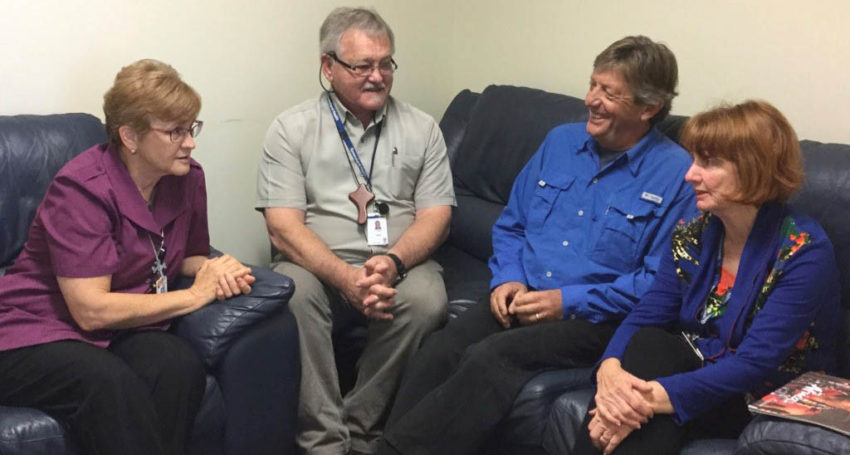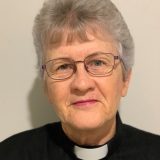The art of deep listening
Features
“It wasn’t until I began working in hospital chaplaincy that I realised that, although I was often not heard in my family of origin, I had learned to listen very well and that was a valuable skill for any chaplain or pastoral carer to have – a skill that, in fact, forms the basis of all caring interactions,” says The Rev’d Ann Shepperson, while inviting parishes to host ‘Creating Caring Communities’ courses

Story Timeline
Creating communities of care
- Hero priests or communities of care?
- ‘Bums off seats’: creating a community of care
- Raising up the leaders of today and tomorrow
- The mission of the Church and communities of care
- Building networks of parishioners
- Our op shop: another door to our church
- Blessing and building the North Lakes community
- Making and maturing disciples of Jesus
- From living on Christchurch’s streets to helping those living on Toowoomba’s
I grew up in a family of six children with two older brothers, two younger brothers and a sister who was six years younger than me. I was born and raised at a time when females were often seen as less valuable and useful than males and when children were told to be seen but not heard. So, it was easy to gain the impression that I had little to contribute to my family or to life generally.
Advertisement
Our family always gathered around the meal table and, as the children grew up and took a greater part in the conversation, I found it difficult to contribute to the dialogue. The sense that while I was expected to listen to others I wasn’t listened to, continued throughout much of my life and frequently I wondered why I bothered to mix socially with people at all.
It wasn’t until I began working in hospital chaplaincy that I realised that, although I was often not heard in my family of origin, I had learned to listen very well and that was a valuable skill for any chaplain or pastoral carer to have – a skill that, in fact, forms the basis of all caring interactions.
My time as a chaplain and my work in parishes providing care for parishioners reinforced this understanding, as I regularly heard patients, healthcare staff and parishioners thank me profusely for the assistance I had given the, when I had said very little and had done nothing at all. But, I had listened. In the focused and deep listening, they knew they were cared about, important and valued. And, that is something we all need to know – in our families, while working alongside colleagues, among friends and most importantly in our church communities.
Advertisement
I have drawn upon these learnings to assemble courses in order to encourage and train parishioners in caring skills and have recently trained eight presenters for the Creating Caring Communities Course: a short course that provides information and skill training to help grow church communities that are warm, welcoming places where all people are listened to and heard and valued for their uniqueness. These courses are being conducted across our Diocese and are commencing soon under the Parish and other Mission Agencies Commission’s ‘Communities of Care’ initiative.
With the recent release of the National Anglican Family Violence Research Report that reveals the frightening prevalence of intimate partner violence among Anglicans, I believe that it is more important than ever for us to develop the ability to listen to vulnerable people and to create a respectful and safe space for people to share their stories with us.
Author’s note: For more information on the ‘Creating Communities of Care’ course or to arrange for a course to be facilitated in your parish, please contact The Rev’d Ann Shepperson via annshepperson@gmail.com or 0408 983 193.






